June Reading Recap
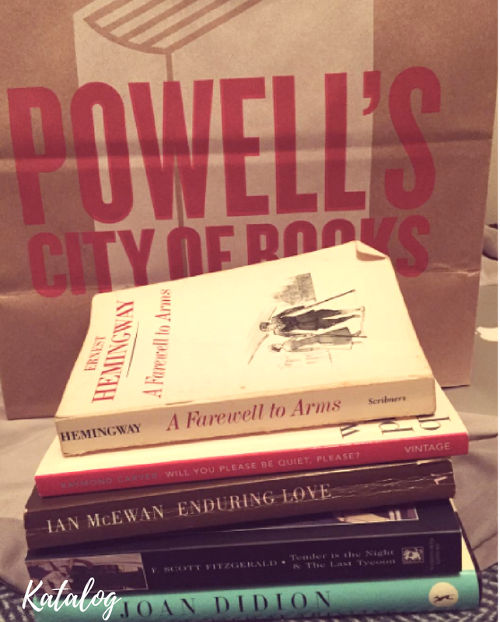
Hey Everyone! I know it’s been a while since my last post. It’s just been a few months of major change involving a big move and an exciting job switch. I’ve also been hunkering down and doing a lot of writing outside of this blog (whoops). Still, it’s time to get back into the swing of blogging for sure!
Since I’ve last posted, I mentioned that I’ve been doing a lot of writing. Starting in June, I happened to pick up a few inspiring reads. I’m taking more and more time, since my move, to just sit with myself and enjoy books again. It’s no surprise then that, after buying a few too many poetry collections, I began to start work on my own collection of poetry.
June was definitely a big reading month for me. I only wish I had that much free-time now. I ended up getting hooked on a couple of great collections of poetry and then, at the end of the month, I went on a major book shopping spree at the Powell’s near my house.
Yup, I spent way more than I should have. Still, I walked away with a couple of my favorite reads yet. Plus, tons of inspiration for my own writing. So, I’ll call the experience a win! Here’s a little recap of the books I read that month. Check it out:
‘The Many Storied House’ by George Ella Lyon
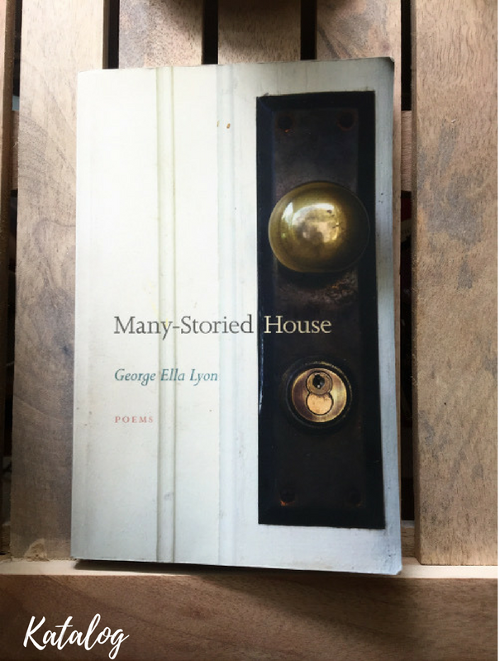
Lyon’s collection starts with the picture of a mid-century, two-story, house. It’s “reddish brown and white. You can’t miss it.” Similarly, if you’re a fan of poetry, you can’t miss out on this collection.
Lyon opens the rest of the collection by introducing us to the floor plans of her childhood home. The first poem begins right at her front door. You then get to explore the house and it’s history through lyrical, free-form poems, which are right up my alley!
I can’t say it enough, her poems are relatable thanks to the inclusion of familial details that anyone who has been a part of a family, functional or dysfunctional, would happily recall. She mentions using a bathroom window to squeeze a kid through when you lock yourself out of the house, small tragedies like a radio breaking, and playing king of the hill with the neighbor kids.
The best part, though, is that Lyon makes you work to decipher her life stories through depictions of the home and all it houses.
You learn about her sick Dad and Great-Grandmother. Plus, her strict mom, six siblings, and a home to house them all.
Some poems are as short three lines - describing just a moment that helps define those that live in the story-home. Others are long and meandering meditations on the events that took place inside the home.
My Favorite Poems in the Collection: That Chair, Phone, Half, [Untitled], Cliff, Final Play, and The Day After.
‘What We Talk About When We Talk About Love’ by Raymond Carver
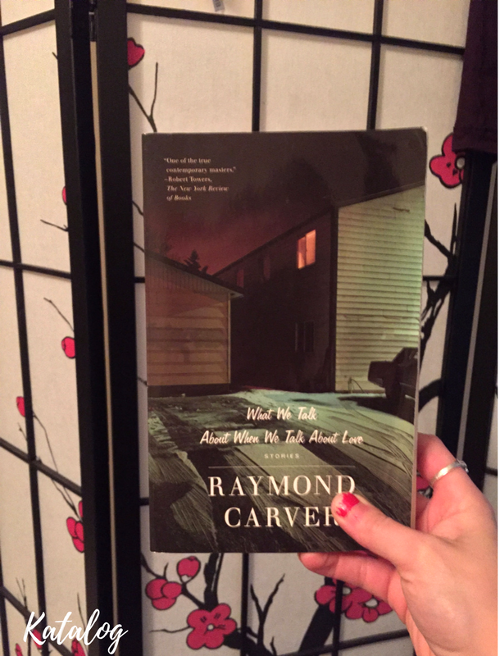
I picked up my copy of ‘What We Talk About When We Talk About Love’ a little over two years ago at Powell’s Books. I had heard it was some of the best short stories you can read. Plus, I’m a sucker for love. A friend once even told me “Katie, you love love,” and you know what, they were right.
I love reading about relationships and learning from the small gestures of the characters how others choose to express romantic emotions or what exactly goes into the beginning and endings of relationships. There’s just something about the subject of love that gets my mind hooked. Carver’s stories were definitely not disappointing then.
Starting with the first story, we see a young couple meet an older man seemingly coming out of his own relationship. He’s selling the remnants of that relationship at a garage sale when the young couple approach him to haggle down the worth of those romantic remnants.
They explicitly undervalue the worth of everything he’s selling. Instead of being hurt by it, though, the character chooses to literally dance in the moment. He puts on some music and invites the couple to dance on his lawn - something both of them have never done before. As if in a dream, the characters take the invitation.
The rest of the stories follow suit. The sentences and paragraphs are short and to the point. Plus, Carver has a unique ability to make the reader do almost all of the work to find the meaning behind them.
He definitely never tells you the moral. Instead, he leaves you to draw the meaning out while savoring the small snapshots of adult love. I think Empty Mirror actually says it best.
“Textually, the stories are light and easy to read, yet they raise complex philosophical questions for the reader about the nature of modern life and love.” - via Empty Mirror Books
A Farewell to Arms by Ernest Hemingway
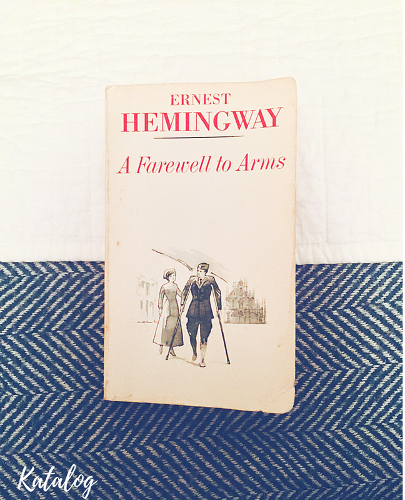
So, I don’t usually get into fiction. Before you get mad at me, let me explain. I tend to read to gain understanding about the world and people around me. So, I just end up reading more poetry and non-fiction.
Still! fiction writers are amazing. They have a talent to create whole worlds in their heads and get us all interested enough in their fantasy to read their shit. Come on! I can only hope to be that creative someday.
Long story short, I read a fiction novel this month. The caveat being that it was Hemingway who heavily draws on aspects from his own experiences.
All Hemingway fans will appreciate the characteristic short, to the point sentences and the strictly factual, yet still descriptive, prose in ‘A Farewell to Arms’. The novel is split up into books that each begin with vivid, and strangely taciturn, descriptions of the setting that Tenente (a.k.a. Henry) is in.
The rest of the novel is also characteristically about war. Tenente is numb to the world during World War I. This may be because he doesn’t see the point in the war.
To that point, he wonders if it is better to be defeated in the war or to surrender. His conflict speaks to how hopeless he feels - an attitude that carries over into his feelings about love and life as well it seems. He does gain a romantic partner but, without giving anything away, the relationships is forced and almost maternal throughout.
Along with a gripping plot, ‘A Farewell to Arms’ has you thinking long and hard about your own relationships with others. You’ll think about them as you follow Tenente as he navigates through the end of World War I and the beginning of his first experience with love.
You’ll notice that all of his relationships are similarly contrived and he is not always truthful with everyone. Instead, he seems to be swimming against the current of life by drinking and hanging out with ‘friends’ to get to a place free of pain.
Poems of the Night by Jorge Luis Borges
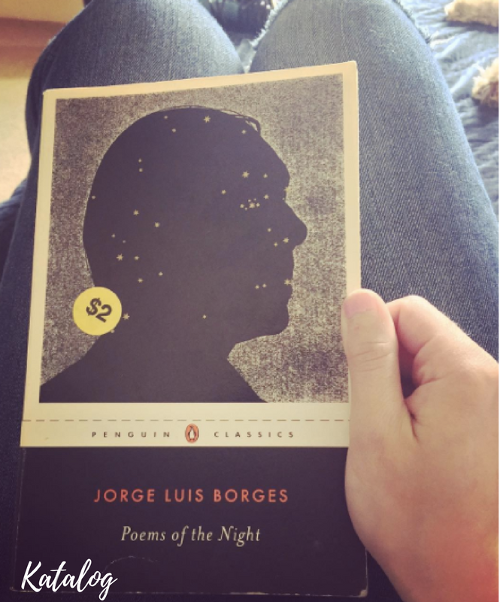
Want to feel like you’re living in a dream world? A kind of dark, only sometimes romantic, dream? I swear, reading this collection was just like that.
Borges’ collection was actually my first read in June. It is also the collection that has inspired me to keep reaching for more and more poetry. I have bought eight(!!!) other collections since. Holy shit. I should probably reel that in, right? I’ll have to tell you more about these soon when I recap my reads during July and August.
In the meantime, what books have you been reading lately? I’d love to hear about them!